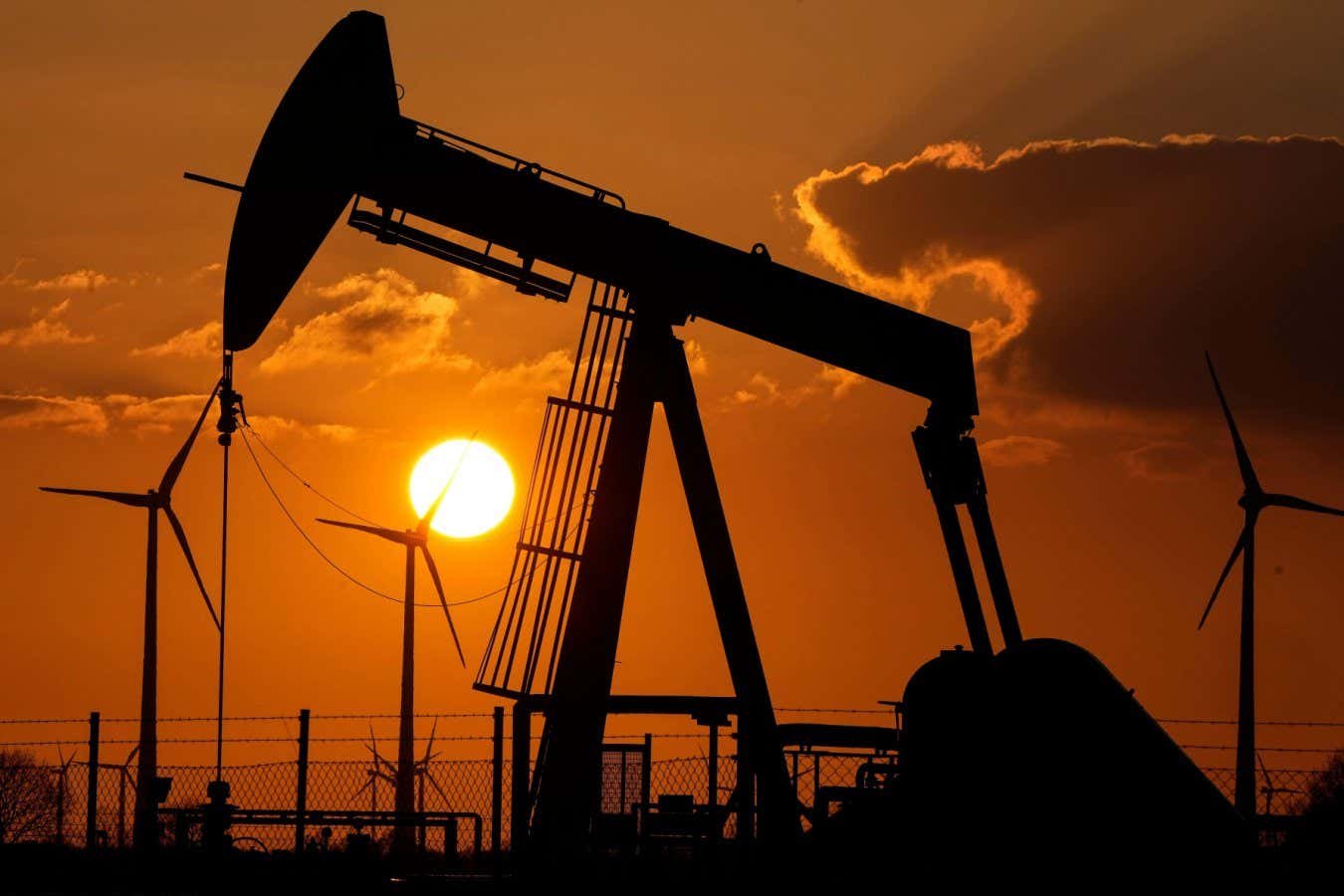Oil companies only make small investments in wind farms
Associated Press/Alamy
Leading oil and gas companies own less than 1.5 percent of the world’s sustained power capacity – raising questions about how engaged they are for the green energy transition despite their public claims.
Marcel Llavero Pasquina and Antonio Bontempi at the Autonomous University of Barcelona looked at ownership registers of more than 53,000 wind, solar, hydroelectric and geothermal projects around the world, as traced by Global Energy Monitor, a non-governmental organization. They then crossed these to see what proportion of those owned by the world’s 250 largest oil and gas companies, collective responsible for 88 percent of the global hydrocarbon exit.
Many fossil fuel companies have promised to invest in renewable energy sources as the world is trying to move away from oil and gas, but researchers found that the top companies own only 1.42 percent of the total operation of sustained capacity globally. More than half of it – approx. 54 percent – was owned through acquisitions rather than companies that developed their own projects. By calculating the total energy production from the 250 companies, the couple found that sustained power accounts for only 0.13 percent of the energy produced by these companies.
“The results were surprising, even for me,” says Llavero Pasquina. “I knew they were playing a very small role in the energy transition. I knew it was only for a show. It was only to dress their story. But I didn’t expect this low number.”
Llavero Pasquina and Bontempi are both part of a group called environmental justice aimed at producing research to “study and contribute to the global environmental justice movement”. Llavero Pasquina says his campaign position strengthens his research. “You have the greatest interest in being as strict as possible because you have to convince and you have to show what is true.”
The fact that large energy companies that have made their name and fortunes through oil and gas utilization are not massive players in renewable energy are not surprising, says Thierry Bros at Sciences Po in Paris. “At the end of the day, [the energy transition] Must be somewhat disturbing and it won’t be in the hands of these companies. “
However, Bros believes that the major energy companies unnecessarily promote their work on the energy transition. “They make themselves [as] To do something, but I think if they were to do something, it would be more carbon catching and sequestraation, ”he says, who involves catching coal as it is emitted, for example when they burn fossil fuels.” They don’t do much because I think it’s completely outside their area of expertise. “
Offshore Energi’s UK, an industry organ that represents Britain’s offshore energy sector, including oil, gas, wind, carbon catching and hydrogen, refused to comment directly about the study’s findings. However, it pointed to a previous statement from his CEO, David Whitehouse. “Far from being in conflict, oil and gas, wind and new low -carbon technologies is part of an integrated system. It is our people’s skills, the same people who built the North Sea who will deliver this transition,” he said.
Topics:
